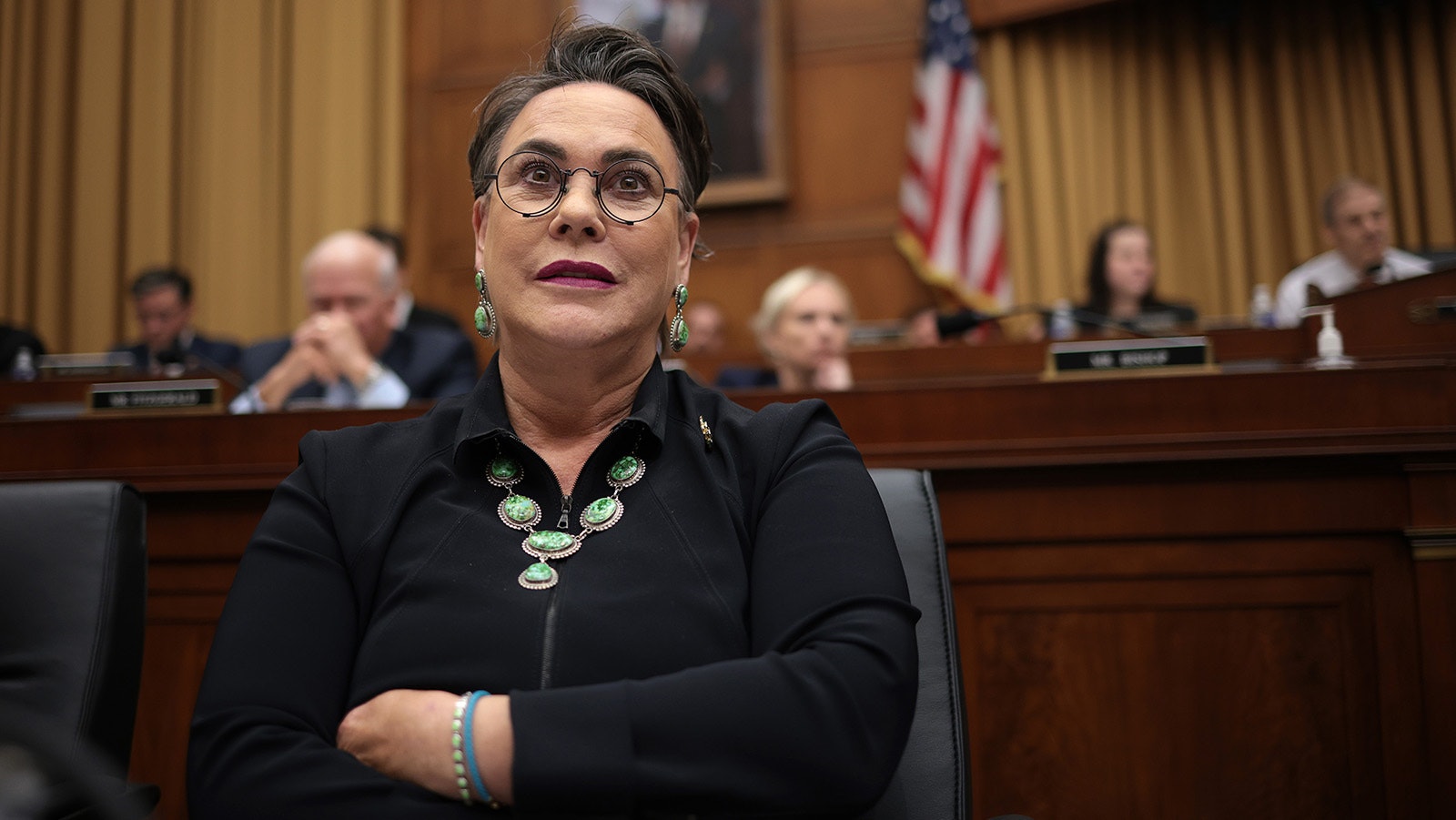Wyoming’s lone U.S. House representative co-sponsored a budget amendment Tuesday that would have defunded a federal law that requires all passenger cars sold after 2026 to have a kill switch.
But the proposed amendment failed Tuesday evening in a 229-201 vote, with eight delegates not voting.
Rep. Harriet Hageman, R-Wyoming, was among 199 Republicans and two Democrats voting to defund the kill-switch mandate. Voting against the amendment were 210 Democrats and 19 Republicans.
“This is a massive and likely unconstitutional rule and an invasion of privacy on a greater scale than we are used to seeing from our government,” Hageman told Cowboy State Daily on Wednesday.
Too Much Big Brother
She said the kill switch requirement has potential for significant waste, fraud and abuse by government agencies and corporate actors through the switch’s tracking capabilities.
“It also leads to several additional questions,” Hageman said. “How does this technology, in cases not involving the use of a BAC, determine if the driver is impaired? Could this technology, by killing a vehicle operation, cause a driver and its occupants to be stranded and placed in an even more dangerous situation? What are the implications of this technology malfunctioning?”
Section 24220 of the Infrastructure Investment and Jobs Act mandates that by 2026, all new passenger vehicles shall be outfitted with “impaired driving prevention technology” systems that passively monitor drivers’ performance, detect whether a driver is impaired and prevent or limit operation if the system detects impairment.
Alternately, the systems can be outfitted to detect the driver’s blood-alcohol concentration and shut the vehicle down if the driver is over the legal limit, the law says.
The Debate
Debate on the House floor Tuesday boiled down to the Constitution’s guarantee of privacy versus Americans’ concerns over drunk driving.
The amendment’s author, Rep. Thomas Massie, R-Kentucky, called it “incredible” that he even had to offer the amendment.
“It almost sounds like the domain of science fiction, dystopian science fiction, that the federal government would put a kill switch in vehicles,” said Massie, adding that Americans have a fundamental right to travel freely.
Massie also pointed to unknowns with the upcoming technology, asking if it would use cameras, if insurance companies could access the data without permission, what sort of waiting periods would restore the vehicle’s operability and if authorities would follow the Fourth Amendment once they have access to this kind of observation.
The Debbies
Rep. Debbie Dingell, D-Michigan, opposed Massie’s amendment, calling it “an insult to every American who has been hurt or lost loved ones to drunk driving.”
Multiple Democratic delegates voiced strong opposition as well, including Rep. Debbie Wasserman Schultz, D-Florida. She said the law does not require auto manufacturers to install kill switches.
“Passive drunk driving technology is a vital tool in safeguarding our loved ones and other innocent people on our roads,” said Wasserman Schultz.
She pointed to the 31% increase in drunk driving crashes between 2019 and 2021 in Florida, and the 190 fatalities in 2021 in Kentucky, Massie’s state.
“You don’t have a right to engage in potentially fatal behavior,” said Wasserman Schulz.
Rep. Jan Schakowsky, D-Illinois, also unleashed statistics, saying 10,000 people die every year from drunk driving crashes.
“You would think that the Republicans would want to do something about it,” Schakowsky said. She derided Massie’s amendment, calling it the “Drunk Driver Protection Act.”
Back To Work
Hageman also proposed some of her own budget amendments Tuesday.
Her colleagues approved her amendment prohibiting the funding of remote work agreements for U.S. Department of Transportation employees.
The delegates also approved Hageman’s amendment prohibiting the Department of Housing and Urban Development (HUD) from offering remote work arrangements when the alternative worksite is within a 50-mile radius of a HUD office.
“HUD’s remote work policy shows that its employees are not showing up to work at the Robert C. Weaver building, but are instead spending their days in their homes, coffee shops and other locations across the greater D.C. area,” Hageman told her colleagues.
To Cowboy State Daily she said, “The COVID pandemic is over and we need our federal workforce to be accountable in its work on behalf of the American citizens they were hired to serve.”
She also advanced an amendment directing $5 million to increase funding for a program to develop aviation technicians, calling this an effort to keep aviation fleets safe and direct money toward jobs rather than “funding a larger bureaucracy.”
Clair McFarland can be reached at clair@cowboystatedaily.com.





